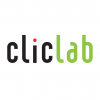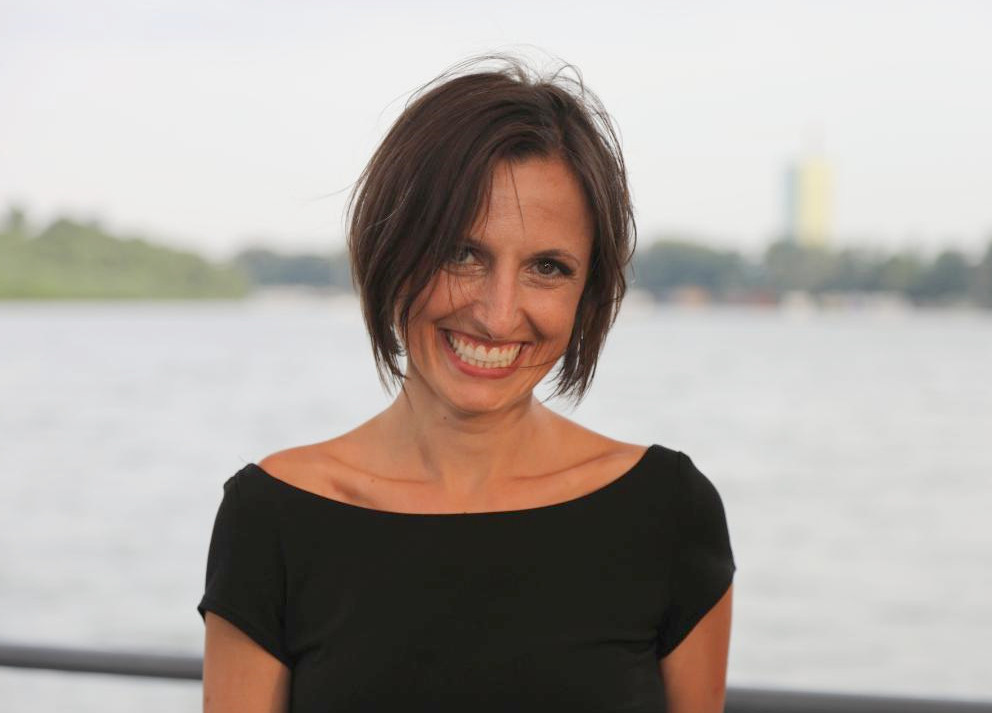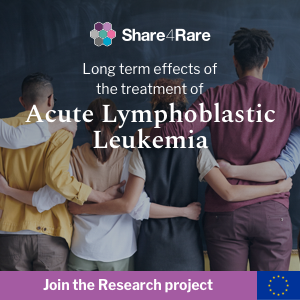
“Platforms like Share4Rare are extremely important in sharing evidence-based information and raising awareness of rare diseases” — Ana Pudja, project manager at CLOSER

Passionate about working for a purpose and committed to contributing to improvements of human health globally, Ana enjoys working in the fields of childhood cancer, cancer genetics and precision medicine. "I am inspired by the emerging innovations in cancer care. I am a certified project manager with an academic background and PhD in life sciences, with focus on cancer genetics and haemato-oncology. In my current role as a project manager of complex international projects at the St. Anna Children’s Cancer Research Institute (CCRI), I devote my skills and knowledge to managing internal and external teams, planning and implementing tasks, reaching achievements and building long-lasting relationships with collaborators, while working on a mission with true impact. And all of that with a smile on my face, which is my personal logo!". Ana is a project manager of CLOSER, a European project contributing to the Share4Rare study on childhood acute lymphoblastic leukaemia.
Citizen driven research
CLOSER wants to make sure that not only scientific and clinical knowledge is taken into consideration when improving the perspectives of childhood cancer patients, but also the needs of the patients and their families. "By including childhood patients, childhood cancer survivors and their families into the project and hearing their needs, we are empowering them to be involved in decision making and research. One of the important aspects the project focuses on is facilitating the transition of teenage patients to adult healthcare environments, which is a great challenge for young patients".
Why is involving patients in cancer research so important?
"The main aim of our work, as scientists, researchers and clinicians, is to learn more about diseases, in order to find better ways of treating patients and improving their quality of life and prognosis. However, the experience of patients and their families, when dealing with cancer, is not only about the biology of the disease. It has many more dimensions, and this is what we have to learn directly from the patients. By involving patients in research projects we can learn a lot from each other. Researchers can understand the unmet patients’ needs better and find ways to address them. On the other hand, by being involved in research projects, patients and their families get empowered and understand the disease better, as well as all the research behind it, and how they can contribute to it".
Analyzing the quality of life of survivors of ALL
The quality of life and sequelae of survivors of acute lymphoblastic leukaemia (ALL) is shaped by the disease course, treatment and management of the patient. Some therapies have long-term side effects. "In different parts of the world and different study centers, patient care differs. By analyzing these parameters, we learn how different patient cancer care approaches affect the patients, and find ways on how to improve them. By sharing information between different healthcare centers in different countries and continents, and by engaging patients and patient associations, we can learn even more, and find best ways to improve the quality of life of patients with cancers". In this context, Share4Rare opened the study focused on analyzing the long-term effects of the treatment of childhood ALL and, as mentioned before, CLOSER collaborates in this study.

What are the benefits of donating clinical information on platforms like Share4Rare?
"In my opinion, Share4Rare is a great platform designed to help patients with rare cancers, by providing them with quality information about rare diseases, and empowering them to connect with research and make a difference in the field of rare diseases. The way of communication has changed a lot over the last years, which now allows patients to be part of such big initiatives, no matter where they are. On the other hand, internet has also become a big mixture of true and false information, in which patients and their families can easily get lost when looking for disease-related information. For this reason, platforms like Share4Rare are extremely important in sharing evidence-based information and raising awareness of rare diseases".
CCRI’s role on the CLOSER project
The St. Anna Children’s Cancer Research Institute (CCRI) in Vienna, Austria, is a research institution focused on translational research for the improvement of treatment and outcome of children and adolescents with cancer. In close collaboration with oncologists from the St. Anna Children’s Hospital and international networks of experts, the researchers at CCRI are committed to understanding the mechanisms and underlying causes of childhood cancer development, therapy response and resistance, with the ultimate goal of improving the outcome of patients. "CCRI leads parts of the research aspects of the project CLOSER, and shares knowledge and experience with project partners, with the aim of advancing the diagnosis and outcome of patients in the participating South American institutions. The CLOSER project team is an amazing team of people passionate about making a difference globally, and it is a true pleasure to be part of it".
The CLOSER project is an EU-funded international multidisciplinary project aiming at harmonizing childhood leukemia diagnosis, care and outcome in Europe and South American regions. Despite the advances in diagnosis and patient management in the last years, there is still a major gap in the survival of patients in these two regions. "When I say the project is multidisciplinary, I really mean that it takes into account many aspects important for harmonizing cancer care. It includes not only research, knowledge exchange and training, but also socio-economic, cultural and ethical aspects, as well as patient engagement, all of which play an important role in enhancing the prognosis of childhood leukemia patients. When dealing with rare diseases, such as childhood leukemia, collaboration is key to success". The project is driven and coordinated by Mireia Camos, from Sant Joan de Déu Barcelona Children’s Hospital, who has the vision to give equal opportunities to affected children worldwide, despite their geographical location.
